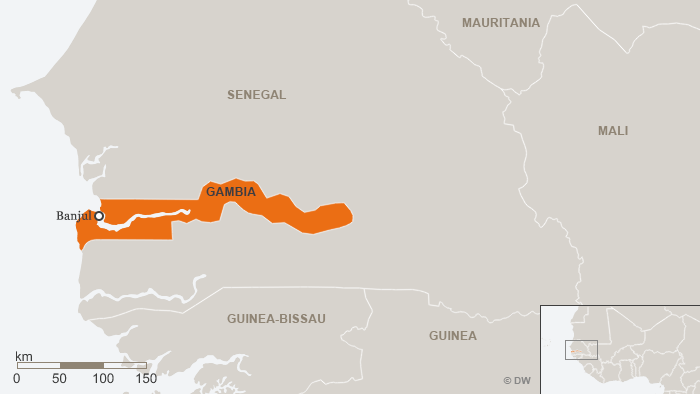A truth commission in Gambia has begun investigating alleged rights abuses committed during the 22-year regime of Yahya Jammeh. (Getty)
A truth and reconciliation commission has begun to investigate alleged rights abuses during the 22-year-long rule of Yahya Jammeh. Authorities have vowed to shed light on extrajudicial killings, torture and other abuses.
A truth commission in Gambia has begun investigating alleged rights abuses committed during the 22-year regime of Yahya Jammeh.
Modelled on South Africa’s investigation into the apartheid era, The Truth, Reconciliation and Reparations Commission (TRRC) aims to shed light on extrajudicial killings, torture, forced disappearances and other alleged abuses during the Jammeh regime. It’s expected to last two years.

The initial proceedings of the commission plan to hear testimony from witnesses and victims of the 1994 coup that brought Jammeh to power in the tiny West African country.
“Today is the day, and we want to hear from every single witness and victim,” said Baba Jallow, TRRC executive secretary and a former journalist who was forced into exile in 2000.
Uncovering abuses
Amnesty International said Monday the start of the hearings “is an important initial step toward securing justice, truth and reparations in Gambia and shows a strong commitment by the government to break with a past of systematic human rights violations.”
“We hope that the testimonies and the information collected during these hearings will enable the truth to be known and made public and contribute to a renewed commitment to justice and accountability for all those Gambians that have been victims of human rights violations for more than 22 years,” the rights group said.
The 11-member commission is authorised to advise prosecution of perpetrators and recommend financial compensation to victims.
Truth and reconciliation commissions were popularised by South Africa’s post-apartheid experience in the 1990s. Proponents say they allow abuses to be uncovered and countries to move on from trauma.
But critics say crimes are often dealt with too leniently, and say the commissions may be used to go after political opponents. — Deutsche Welle
